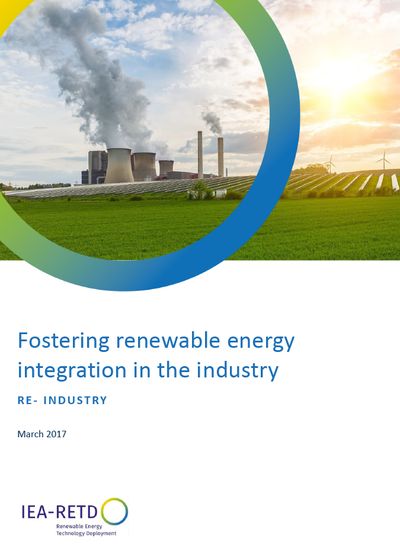Fostering renewable energy integration in industry

Renewable energy (RE) integration in industry is already widespread worldwide. Beyond GHG emissions reduction, it brings direct operational, economical and non-financial benefits to industrial players in a changing energy environment.
Blunomy (Enea Consulting) published the results of a study on the integration of RE in the industry. The study was conducted in partnership with Kerdos Energy for the International Energy Agency Renewable Energy Technology Deployment (IEA-RETD).
This study aims to provide inspiration and a panorama of RE applications in the industry (identification of more than 200 projects worldwide), present best practices and key developments of such projects for industrial players (21 detailed case studies); and formulate policy recommendations for policy makers and provide lessons learned for industrial organisations to make RE integration a widespread practice in the industry globally.
Different integration schemes are possible, from simple and investment-light projects to more complex integration projects which can lead to adaptation of core production processes. RE integration in industrial assets brings direct benefits to industrial players, such as energy costs reduction and energy prices hedging, and improved energy supply reliability.
Nevertheless, various barriers still hinder full RE development in the industry. However, industrial players and policy makers have a wide array of options to overcome them. Eight issues have been identified that can nudge an industrial organisation towards or away from deploying RE production assets in its facilities. Thus, third party energy production schemes represent a significant opportunity for industrial players who lack the equity capital / cash needed to develop RE projects. Similarly, new shorter-term contractual schemes that fit better with industrial players’ and third party energy producers’ constraints are being developed.
Beyond direct financial incentives, innovative public support schemes should be implemented; and technical, contractual and business innovations are still required. Policy makers should ensure that regulation allows and even fosters different RE integration schemes. Industrial organisations should accelerate their commitment to adapt their financial and contractual engineering to such schemes. If those barriers are lifted there is plenty of room to generate many new and successful projects in the coming years.